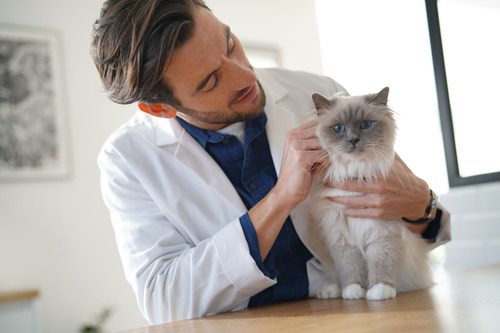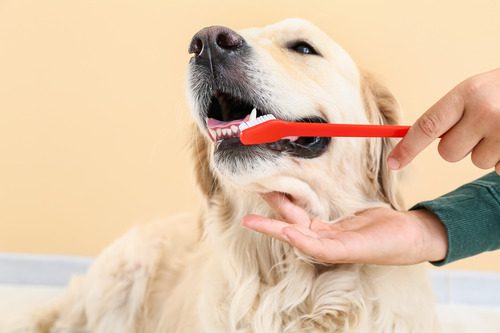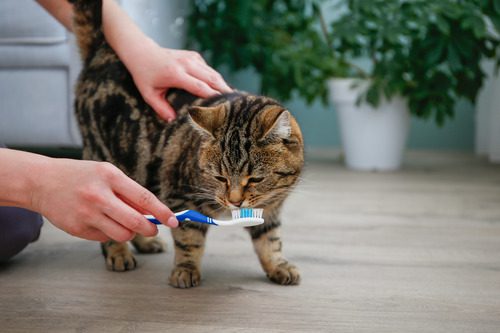Causes and Treatments for Your Cat’s Coughing in Alameda, CA
Finding that your cat is having a coughing fit is understandably very concerning. There are several different causes for cat’s coughing. Luckily, there are normally very effective treatments for most of these causes for coughing in cats.
The most common causes for coughing in cats include hairballs, asthma, upper respiratory infections, and inhalation of objects. However, there are some more serious potential causes for coughing in cats.
In this article we will be explaining everything that cat owners need to know about coughing in cats. This includes what the causes for coughing in cats are and how they are treated. Let’s get right into it.
8 Causes for Coughing In Cats
There are eight potential causes for coughing in cats. Most of the time coughing in cats is caused by hairballs, upper respiratory infections, asthma, and the inhalation of a foreign body. However, there are some more rare and serious potential causes for coughing in cats as well. These more severe causes include injuries, heartworm infections, pleural effusion, and certain types of cancer. Here are all of the causes for coughing in cats.
Your Cat Has A Hairball
Most of the time cats will cough simply because they have a hairball. Although this is normal for cats, very frequent hairballs can become a problem and cause some unhealthy complications. As a result, you may want to take your cat to the vet if they seem to be having hairballs all of the time.
It is important to note that cats with long and thick fur tend to have hairballs more often than cats with short fur. This is because they tend to get more hair in their throat when grooming themselves. Brushing your cat on a regular basis can help to reduce the amount of hairballs in many cases.
Upper Respiratory Infections
Upper respiratory infections are yet another fairly common cause for coughing in cats. Luckily, upper respiratory infections are usually very treatable by a vet, and they are not life threatening conditions most of the time.
It is important to mention that upper respiratory infections are often contagious among cats. This means that you may want to quarantine your cat if they have been diagnosed with an upper respiratory infection and you have multiple cats in the home.
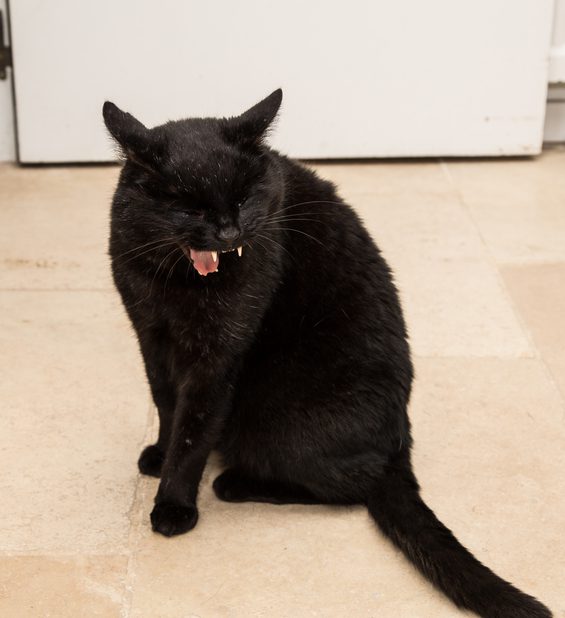
Asthma
Asthma is another possible cause for coughing in cats, and this coughing is usually chronic and occurs often. Luckily, this condition in cats is actually pretty manageable when properly diagnosed and treated by a vet.
A Foreign Body
When a cat inhales a foreign body this means that they have breathed in an object that they shouldn’t have. This commonly leads to coughing as the body is trying to force out the object. Depending on the object and how deep it is within the cat’s respiratory tract, this condition may or may not require surgery to correct.
Pleural Effusion
A pleural effusion is a build up of fluid around the lungs. This normally occurs as a result of a severe infection, injury, or medical condition. As a result of this build up of fluid around the lungs, the cat will usually start to cough due to feeling very uncomfortable.
Pleural effusion can be treatable through treating its cause and physically removing the fluid from the cat’s chest. However, this is a very serious condition that requires veterinary attention immediately.
Heartworms
A severe heartworm infection can cause coughing in cats as well. This is due to both the infection itself and sometimes also the result of pleural effusion. In many cases a cat’s immune system will create this build up of fluid in the chest as an immune response to the heartworms.
Very severe heartworm infections are not always treatable. However, heartworms can be easily eradicated when caught early on, and they are also very preventable. This is why giving your cat heartworm prevention medication regularly and getting your cat tested for heartworms every so often is so important.
Injuries
Of course, an injury to a cat’s lungs or airways can cause them to cough as well. Considering that injuries to the respiratory system are almost always very serious, it is crucial that you take your cat to the vet immediately if you suspect that they have one.
It is important to note that some cats may cough up blood as a result of an injury to their lungs or airways. However, this is not always necessarily the case.
Cancer
Sometimes tumors and cancer present in a cat’s lungs or airways can be the cause for their excessive coughing as well. This coughing can be accompanied by bloody discharge, but this may not always be the case.
Treatments Available for Coughing Cats
Luckily, there are often treatment plans available for coughing cats. This is especially true if the cause is not too serious such as an upper respiratory infection or asthma. Here are all of the common treatments for coughing in cats.
Hairballs
When it comes to hairballs there are usually no extreme treatments available. However, sometimes keeping up with a more regular grooming and brushing schedule can help with reducing the amount of hairballs that a cat has.
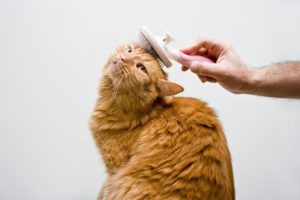
Asthma
Usually the treatment for asthma in cats is through medications like steroids and bronchodilators. These medicines are designed to widen the airways and make breathing easier. Most of the time cat owners will give these medications to their cats orally. However, there are also some inhaler-like devices for cats as well.
Upper Respiratory Infections
Upper respiratory infections are normally treated with antibiotic or antiviral medications depending on which illness the cat has. In addition to this, some cats may also receive some medications to help reduce the severity of their symptoms. Normally upper respiratory infections are very treatable in cats, and they should be back to normal after receiving treatment in no time.
Foreign Body
If your cat has inhaled a foreign body then it will likely need to be extracted by a veterinarian. In some cases this will require surgery, but in others it may not.
Other Severe Causes for Coughing
In the case of the more severe and rare causes for coughing in cats then it is likely that your cat will need to be on a specialized treatment plan. This may require things like surgeries and specific medications depending on the cause.
For more information or questions about your cat’s health, please call Providence Veterinary Hospital East at (510) 521-6608 or West at (510) 521-5775.
Recent Posts
What Does Your Dog’s Tail Wag Really Mean?
What Does Your Dog’s Tail Wag Really Mean? Dogs use their tails for much more than just…
Feline Leukemia: Prevention and Detection
Feline Leukemia: Prevention and Detection Cat Feline Leukemia is a serious viral disease that affects felines worldwide….
A Team Effort: How Home Care and Professional Cleanings Keep Your Dog’s Teeth Healthy
A Team Effort: How Home Care and Professional Cleanings Keep Your Dog’s Teeth Healthy Dental health is…
The Perfect Pair: Home Care and Professional Cleanings for Your Cat’s Teeth
The Perfect Pair: Home Care and Professional Cleanings for Your Cat’s Teeth Caring for your cat’s teeth…
What is Bordetella and Why Should You Care?
What is Bordetella and Why Should You Care? Bordetella is a term many pet owners hear when…
Providence Veterinary Hospital & Clinic serve Alameda, CA as well as Oakland, San Leandro, and the surrounding areas with superb veterinary medicine and gentle, compassionate care. We’ve been a part of this community since 1947 when a veterinarian started seeing pets in his home after the end of World War II. He built an animal hospital right under his house, and that’s where we remain to this day (with modern remodeling in 2016, to outfit the hospital with the latest medical technology and equipment, of course!).


